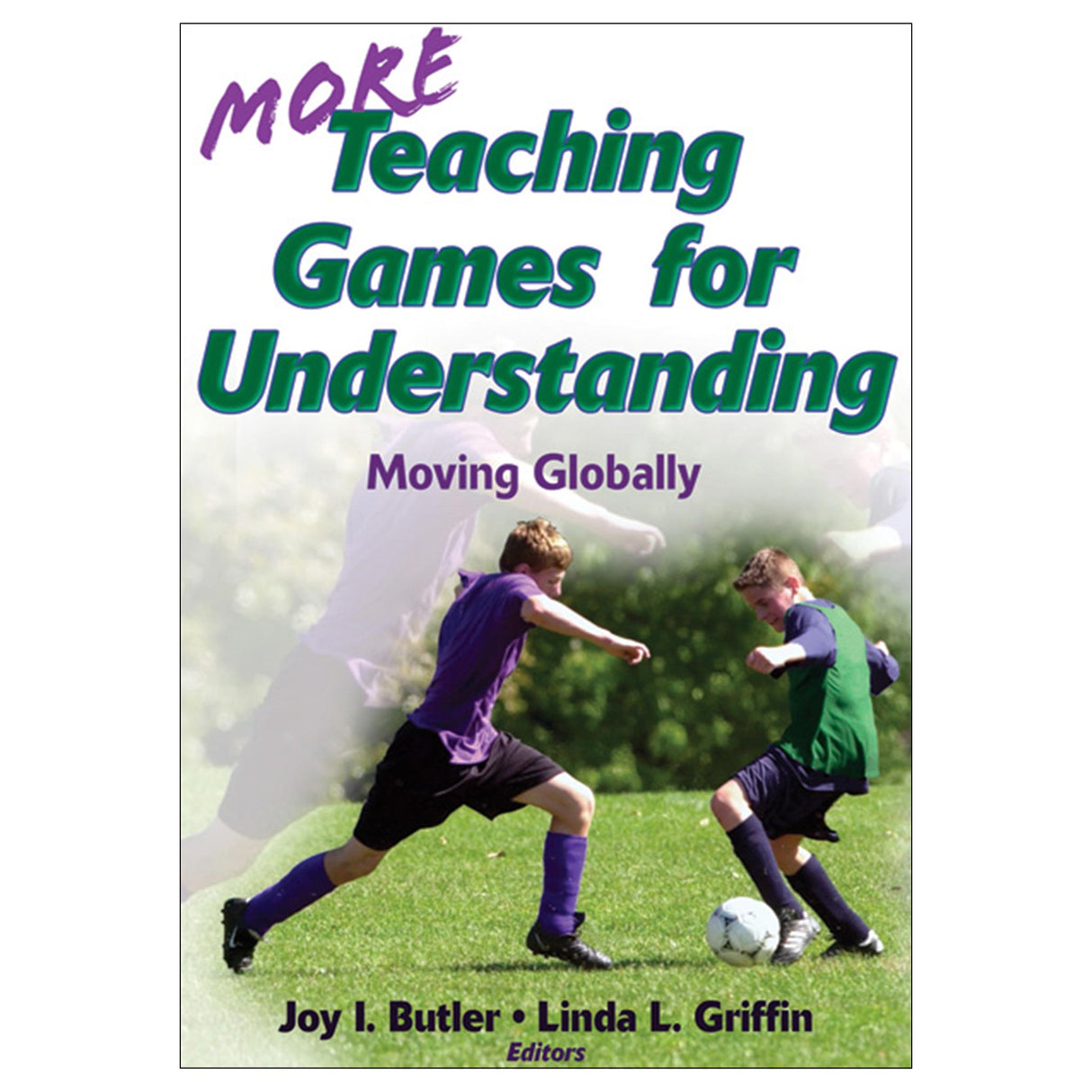More Teaching Games for Understanding PDF
Moving Globally
Author: Joy I. Butler, Linda L. Griffin
$41.95 CAD
Access Duration: 10 Years
With More Teaching Games for Understanding: Moving Globally, you can learn and apply an innovative approach to teaching games that has been used around the world for 30 years in school and sport settings.
Editors Joy Butler and Linda Griffin bring the teaching games for understanding (TGfU) approach to life for you in this practical book. More Teaching Games for Understanding follows Griffin and Butler’s highly successful 2005 book, Teaching Games for Understanding. This new book is based on the Fourth International TGfU Conference held in 2008 and includes all-new chapters written by 27 world-renowned contributors representing 6 countries. The preface and foreword are written by the founders of TGfU, Rod Thorpe, David Bunker, and Len Almond. This book is not a rehash or a revision of the 2005 book; it presents all-new material on TGfU.
More Teaching Games for Understanding offers a comprehensive description of the TGfU model (sometimes referred to as the tactical games model or the games sense model). The text grounds you in the model’s latest theory, research, and practice, and it helps you understand
• various models of practice for sport and games education,
• worldwide perspectives on the TGfU model,
• how to facilitate flow motion in games and sports, and
• how to modify games to enhance learning and achieve learning objectives.
The authors use chapter-opening scenarios to draw readers in and introduce important concepts, and they provide chapter-ending summaries that help readers test their understanding of those concepts. They also offer discussion questions that function as starting points for discussion and review.
This is the most complete, current, and authoritative book on the TGfU model that you can find. The breadth, depth, and quality of the chapters afford you an insider’s look at this highly successful model, and its practical approach will help you readily put to use the knowledge gained from the highly regarded contributors.
A small sample of what you’ll learn includes how to involve students both in creating games and in assessing games to shape future performances, how to employ TGfU as a coaching methodology, how to use complexity thinking as a theory to frame the learning processes involved in TGfU, how to best use TGfU in elementary school physical education settings, and TGfU’s role in developing physical literacy in children.
More Teaching Games for Understanding supplies you with a teaching model that will empower kids, deepen their knowledge of game tactics and strategies, help them improve their skills, and bring greater joy to them as they play games.
Part I. TGfU Movement in an International Context
Introduction
Joy I. Butler, EdD and Linda L. Griffin, PhD
Chapter 1. Asian-Pacific Perspectives on Analyzing TGfU
Raymond Liu Yuk-kwong, PhD
Hong Kong Institute of Education
Part II. Research: Reexamination
Chapter 2. TGfU: Celebrations and Cautions
Judith Rink, PhD
University of South Carolina, Columbia
Chapter 3. Sport and Games Education: Models of Practice
Connie S. Collier, PhD; Judy Oslin, PhD; Daniel Rodriguez, MA; and David Gutierrez, PhD
Kent State University and Universidad de Castilla la Mancha (Gutierrez)
Part III. Theory: Understanding, Learning, and Complexity Thinking
Chapter 4. Teaching Games for an Understanding of What? TGfU’s Role in the Development of Physical Literacy
James Mandigo, PhD and John Corlett, PhD
Brock University
Chapter 5. Feeling Flow Motion in Games and Sports
Rebecca J. Lloyd, PhD and Stephen Smith, PhD
University of Ottawa and Simon Fraser University
Chapter 6. Enabling Constraints: Using Complexity Research to Structure Collective Learning
Brent Davis, PhD and Dennis Sumara, PhD
University of Calgary
Chapter 7. Occasioning Moments in the Game-as-Teacher Concept: Complexity Thinking Applied to TGfU and Video Gaming
Tim Hopper, PhD and Kath Sanford, EdD
University of Victoria
Chapter 8. Ecological Thinking and TGfU: Understanding Games as Complex Adaptive Systems
Brian Storey, MA and Joy I. Butler, EdD
Douglas College and The University of British Columbia
Part IV. Practice: Assessment, Coaching, Elementary and Secondary Teaching
Chapter 9. Student-Involved Formative Assessment as a Cornerstone to the Construction of Game Performance
Jean-François Richard, PhD
l’ Université de Moncton
Chapter 10. TGfU and Humanistic Coaching
Lynn Kidman, PhD and Bennett J. Lombardo, EdD
University of Worcester and Rhode Island College
Chapter 11. TGfU as a Coaching Methodology
Adriano De Souza, MA and Steve Mitchell, PhD
Illinois State University and Kent State University
Chapter 12. A Model for TGfU in Elementary-School Physical Education
Inez Rovegno, PhD
University of Alabama
Chapter 13. Development of Creativity in the Scope of the TGfU Approach
Daniel Memmert, PhD
German Sport University Cologne
Chapter 14. Unpacking Tactical Problems in Invasion Games: Integrating Movement Concepts Into Games Education
Kath Howarth, PhD; Jennifer Fisette, EdD; Michele Sweeney, EdD; and Linda L. Griffin, PhD
State University of New York at Cortland, Kent State University, Salem State College, and University of Massachusetts





